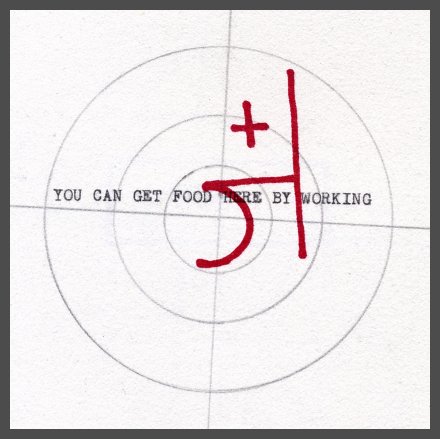
For most economists, scarcity has never been a problem. They prefer it because it drives up the price of things. If we run out of stuff, substitution fuels the dance of supply and demand. But the orthodoxy of classical economics is showing signs of acute stress under the weight of 21st century reality. We’re entering the age when the capitalist’s dream comes true in an unintended way. Scarcity will rule, and it turns out that it’s not really good for business after all. It looks as if the basic necessities of life are actually going to get scarce in our lifetimes. Everything – earth, air, fire and water. Arable land, clean water, clean air, and fossil fuels.
I first heard the idea of ‘peak everything’ from entrepreneur and author Paul Hawken some years ago. I’ve been thinking about it ever since. He spoke in a gentle, almost hypnotic cadence as if, among friends, we all knew very well that “of course it’s not just peak oil, but peak everything… peak fish, peak soil, peak water, and so on.” All limited, depleted, and getting more expensive. Later I found out that Richard Heinberg has written a book about it, called Peak Everything: Waking Up to the Century of Declines.
I’ve admired Hawken since I edited part of his book, Growing a Business, for The Journal of Wild Culture in 1988, so I am predisposed to trust him. But there’s something else that has been keeping me awake at night, like a 300-pound gorilla on my chest, since a chance encounter with another one of my heroes in the fall of 2009.
One day I was riding the elevator to my office in Toronto. When the elevator door opened, two colleagues were standing there. They reached out toward me, and said quickly, “Oh, it’s you – we’re just waiting for James Lovelock. He’s coming to a lunch meeting with a group of people. Gosh, it would be good to have you at the meeting – why don’t you come to lunch?”
So, within minutes, I was sitting close to the man himself, James Lovelock, the scientist whose invention of a device to measure gas traces in the atmosphere provided the scientific basis for Rachel Carson’s Silent Spring. It was Lovelock’s vision that helped us all appreciate the biosphere’s delicate balance. He named the breathing planet by her ancient Greek name, Gaia, and his Gaia hypothesis describes the cooperation of all life to maintain the unique chemistry of our atmosphere in homeostasis. A nice sandwich was placed in front of me as I looked around in awe at the gathering of local heavies – about fifteen journalists, politicians, and professors.
Lovelock was in town to talk about his thesis and book, The Revenge of Gaia: Earth's Climate Crisis and the Fate of Humanity, where he predicts that, through a cascade of negative feedback loops, global warming will accelerate in the next 20 to 30 years, the earth will heat up over ten degrees, the Arctic will be the most habitable place on the planet, and seven out of eight people will die. Nice bedtime reading, apparently quite popular among politicians in the UK and Europe since it came out in 2006.
During the discussion Lovelock expressed very strong pro-nuke, anti-green views, apparently calm but with a certain barely restrained contempt. His strong feelings and hard-line point of view emerged clearly when we got Amory Lovins on the speaker phone. Lovins is another original thinker in the last few decades of environmental change. It was Lovins who coined the term ‘soft energy’, and Lovins who installed the solar panels on Carter’s White House that Reagan quickly trashed. From his stronghold at the Rocky Mountain Institute he is a tireless proponent of ‘negawatts’: the simple idea that if you don’t burn it, you don’t have to produce it, and furthermore, doing more with less fossil fuel is good business.
But I needed to meet him, both for his prophetic fire and for his failure to win me over.
So here they were, the clash of the Titans: Lovins vs Lovelock. Lovins clearly found the conversation frustrating, because Lovelock dismissed all renewable energy production, particularly wind power, as pathetically inadequate to the massive energy demanded by the challenge of adaptation to catastrophic climate change. It was a really strange experience, as Lovelock seemed most interested in preserving his view of England’s green and pleasant land against ugly, stupid windmills, without giving any credence to Lovins’ powerful argument advocating a sustainable energy transition that avoids both the economic and environmental risks of nuclear energy. They were two giants arguing across a chasm, one seeking rational debate, the other rigid and defensive.
I felt sorry for Lovelock, and I was overwhelmed by the feeling of reactionary bitterness coming from him. He really seemed to me to be throwing out the baby with the bathwater. He could be forgiven. Born like my own father in 1919, Lovelock is over 90 now. But it was painful to hear him; almost nightmarish. The experience was so unpleasant to me that I was physically tired out by it. I felt a strong urge to sleep. It was the kind of narcolepsy that sometimes overwhelms me in meetings with lawyers.
I came away from that encounter shaken, brooding, talking about it to anyone who would listen. I was like the Ancient Mariner in the poem, repeating his dread tale to passers-by: “Water, water everywhere / Nor any drop to drink.”
Living With The 300 Pound Gorilla
Lovelock was long on pessimism but sadly lacking in compassion. He didn’t seem to be very interested in how people might respond collectively to the hard times ahead. I would be lying if I said I got over it. But I needed to meet him, both for his prophetic fire and for his failure to win me over. I’m grateful that he is still in the room with us, speaking his mind.
I would like to propose an antidote, a social response to the dark age ahead. Using the language of the Other to frame the challenge, we might say that we need to launch, and wage — with everything we’ve got — a war on scarcity. If we must have the war on drugs, and the war on terror – completely absurd wars without end, wars whose enemies are everywhere and whose battlefronts are nowhere – then perhaps we should have another one of those wars where the enemy, as Pogo said, is us. I propose that we declare war on scarcity and fight it with a culture of abundance.
Maybe it’s all in the mind. The motivational teacher Steven Covey suggests that "most people are deeply scripted in what I call the Scarcity Mentality. They see life as having only so much, as though there were only one pie out there. And if someone were to get a big piece of the pie, it would mean less for everybody else…The Scarcity Mentality is the zero-sum paradigm of life …The Abundance Mentality, on the other hand, flows out of a deep inner sense of personal worth and security. It is the paradigm that there is plenty out there and enough to spare for everybody…It opens possibilities, options, alternatives, and creativity."
Though some may question Covey’s cheerleading as a voice of privilege, let’s imagine that he is right. Of course, if it weren’t for the unequal distribution of wealth, he is quite right, there is enough for everybody. I propose that we use the lens of the abundance mentality, and look at the scale of the human-generated change that we face, and ask ourselves: Why bother? What would leadership look like if we began to understand the collective response that is called for? Where do we go from here? And how do we get there together?
The skyrocketing cost of energy is likely to be a driver of policy change before fear of climate impacts.
‘Together’ is the important word. Not just “where does my family go from here, with our own resources and cunning?” As the ranks of the unemployed and the desperate grow, as peak everything kicks in and the basics of life become much less affordable, what is our collective response? Brother, can you spare a dime?
If we think of fossil fuel as embodied sunlight, the sun’s heat stored beautifully in the compressed remains of ancient plants, then it’s a form of fire, and we’re entering an age when even fire, the fourth classical element, will become scarce and therefore precious. We may hear again what we heard 30 years ago from Canadian politician Ralph Klein when he was mayor of Calgary, Alberta (now the economic epicenter of our carbon intensive tar sands industry). He said, “Let the eastern bastards freeze in the dark.” The question that is begged by this attempt to crush rational debate is this: How can we avoid a future scenario in which the ‘energy haves’ tell the ‘energy have-nots’ to go freeze in the dark.
The Industrial Revolution should really be called the fossil fuel revolution. Coal and oil-fuelled engines powered the cascading waves of innovation and agricultural hyper-abundance that enabled our human population to go from one billion at the beginning of the Industrial Revolution to 6.7 billion and counting. But the dark side of this success is that we built our prosperity by taking carbon out of the ground and putting it into the air, poisoning our habitat and ourselves. It’s been fun: cheap, easy energy, food, and mobility. As a child of the ‘50s I am part of the peak generation: the Boomer. Heinberg says that during my boomer lifetime, one half of all the world’s important non-renewable resources have been used up. It’s painful just to say that.
Peak oil, the point when all the world’s sources of supply can no longer meet global appetite, is still debated and denied in high places. Has it happened yet? Is it bunk? Well, it’s a non-renewable resource, so it has to peak some time. Despite the tar sands optimists, there is broad scientific consensus that we have in fact reached peak oil, and the gap between constrained supply and insatiable demand will be severe by mid-century. We’re depleting this precious energy resource, and it’s getting more expensive to extract, even with the short-term promise of new sources from fracking and Arctic drilling.
The skyrocketing cost of energy is likely to be a driver of policy change before fear of climate impacts. That’s interesting. Thanks to Al Gore, Leonardo di Caprio and other pop champions, the general public is much more convinced of climate change than it is about the end of cheap energy. However, it’s expensive energy that will cause political convulsions before climate change really hits. Heinberg and others make a persuasive case that we are facing a great, inevitable energy transition. We will still be faced with scarcity of fuel even if we ignore environmental impacts, but we have yet to see any policy response that begins to address it in North America. There is some leadership in other parts of the world. We can admire the steady progress toward fossil fuel independence in many northern European countries, at both municipal and national levels. Policy in most countries lags far behind the relentless escalation of extreme weather and fuel costs. The words grow old in our mouths, as the statesman Willy Brandt once said.
The Words Grow Old In Our Mouths
When speaking to a progressive crowd, Paul Hawken can suggest that we all understand peak everything, and I wish we did. Yes, perhaps fossil fuels are non-renewable and finite. Most of us have at least an intuitive sense that the Gulf Wars, Iraq and Afghanistan are all about oil. But few of us think systemically without some help, and there is not yet much help to be found in popular culture to grasp the systemic implications of the word “non-renewable”. Yes, maybe peak oil, but what if we have also passed the irrevocable limits of peak soil, peak water, peak fish, peak agricultural production, peak forests, as well as resources such as uranium, copper, platinum, silver, gold and zinc; and what if biodiversity is beginning to crash as ecosystems collapse, starting with aquatic ecosystems? These shortages, particularly the drop in grain production, mean that human population will also peak and decline. Lower food production in some regions is also likely to accelerate with global heating. This information, seen as a whole, is too much for most of us to hold in our consciousness. Data strongly suggests that even technical breakthroughs per capita are in decline. It is harder and harder to invent new things, as there has been such an explosion of creativity and technical innovation in the latter part of the 20th century. This should undermine our blind faith, or a least give us cause to doubt, that ‘they’ will find clean tech solutions to every problem.
Dr. Faustus was impatient with limits to human power. How did that work for him?
Heinberg very elegantly explains how it’s happening. It’s no coincidence that so many peaks are occurring together, he argues. All the peaks are causally related. For the past 200 years, cheap, abundant energy from fossil fuels has driven technological invention, increases in total and per-capita resource extraction and consumption (including food production), and population growth. We are enmeshed in a classic self-reinforcing feedback loop:
Fossil fuel extraction
---> more available energy
---> increased extraction of other resources, and production of food and other goods
---> population growth
---> higher energy demand
---> more fossil fuel extraction (and so on)
If the increased availability of cheap energy has enabled unprecedented growth in the rates of extraction of other resources, then the coincidence of peak oil with the peaking and decline of many other resources is entirely predictable. The affluent minority of people alive today, primarily North Americans and Europeans, are experiencing the greatest material abundance in human history – a material abundance based on finite sources of cheap energy that are now entering their sunset phase.
Perhaps individually and collectively, we have to go through the five stages of grief articulated by Elizabeth Kübler-Ross: denial, rage, bargaining, depression, and acceptance. However, we’re having a hard time moving past denial. The opposing voices of technocratic optimism are very loud and appealing, urging us to maintain our faith in limitless growth and technological miracles. Neoliberal opinion leaders such as Ted Nordhaus and Michael Shellenberger, who dropped the “end of environmentalism” bombshell back in 2004, wrote a follow-up manifesto a few years later. In 2007, they made the claim that because we want continuous growth, we must have it. In the spirit of knowing your enemy and also, perhaps, needing strange bedfellows for systemic change, they are worth listening to.
"The challenge we face as a species is to roughly double global energy production by mid-century while simultaneously cutting greenhouse gas emissions in half worldwide (and about 80 percent in the United States), so that we can avoid the worst consequences of climate change. How could such a massive undertaking be achieved? Not, as environmental leaders insist, by limiting human power but rather by unleashing it. In terms of birthing a new energy economy, regulation is important – it’s just not the most important thing. The highest objective of anyone concerned about global warming must be to bring down the real price of clean energy below the price of dirty energy as quickly as possible – most importantly, in places like China. And, for that to happen, we’ll need a new paradigm centered on technological innovation and economic opportunity, not on nature preservation and ecological limits."
This is a technocratic solution, and the real danger of it is the either/or framing. I would argue that, in fact, we need both/and. There can be no way forward toward a liveable future for humanity without what they so quaintly call “nature preservation and ecological limits”. As if biodiversity and climate stability are expendable ‘nice-to-haves’, not necessities of life. Do we need to “limit human power” in order to stop fouling our own nest? Well, we need to channel human drives and ingenuity, to live within ecological limits. Dr. Faustus was impatient with limits to human power. How did that work for him? We need to level off human production and consumption toward sustainable prosperity that is less dependent on economic growth. The real work will be to re-define ‘prosperity’ as economic growth slows down, a strange idea that’s gaining new credibility these days.

Some futurists envision a fourfold increase in energy use worldwide by 2100. This assumes that the earth will play along with this unsustainable level of natural capital extraction. However, it is likely that fossil fuel scarcity and catastrophic climate change, in that order, will completely derail this headlong rush toward ecological overshoot. Contrary to popular belief and mainstream media reports, new sources like shale gas fracking and new wells in ice-free Arctic waters have not put the lie to peak oil. The world is still running out of easy, cheap fossil energy and prices will relentlessly rise as demand steadily outstrips global supply.
But we can understand where they are coming from. They side with economists such as Lawrence Summers, who expressed this view of abundance when he was chief economist for the World Bank in the early 1990s: "There are no limits on the planet's capacity for absorption likely to hold us back in the foreseeable future. The danger of an apocalypse due to global warming or anything else is non-existent. The idea that the world is heading into the abyss is profoundly wrong. The idea that we should place limits on growth because of natural limitations is a serious error; indeed, the social cost of such an error would be enormous if ever it were to be acted upon."
They urge us not to use less, not to live lightly. There is no alternative, as Maggie taught us. The cure for economic stagnation is shopping, said Dubya. They speak for many opinion leaders in their disdain for self-imposed limits. We need to respond to this false notion of abundance, based on unlimited growth fueled by energy-intensive technologies.
Perhaps one of the most powerful ideas to be found in Richard Heinberg’s work is the concept of diachronic competition. This occurs when people compete ruthlessly for resources with other people who live in the future. It is a terrible truth to contemplate, to really grasp the fact that we are stealing these dwindling resources from our children’s children, and onward to the proverbial Seventh Generation. I wonder if this idea is so powerful that even the defenders of capital could be humbled and motivated by it? Could this be a fulcrum idea that could shame our culture, in such a powerful way that it would cause a cultural shift? With irony and wit, we need to discredit our stubbornly defended belief in what Heinberg calls “entitlement to a glittering technotopian future of effortless abundance.” Could this be a job for those infamous guerilla satirists, the Yes Men? I hope so. And what are the powers of attraction that we can harness? Toward what alternative, what consolation?
Deck Chairs on the Titanic?
Here is an interesting comment from an oil executive, Oystein Dahle, former Exxon vice president for Norway and the North Sea: "Socialism collapsed because it did not allow prices to tell the economic truth. Capitalism may collapse because it does not allow prices to tell the ecological truth." The movement for radical transparency could be a way to avoid the collapse of American capitalism – or provide a new model to emerge from the rubble – if it succeeds in moving some part of US business from its pathological focus on maximizing shareholder value (shareholder capitalism) to a full recognition of how business can succeed while serving the wellbeing of all peoples and habitats affected by their activities (stakeholder capitalism).
We need a solutions-based, convivial focus to move forward and live in the moment.
It’s all about letting prices tell the ecological truth, which is the subject of Daniel Goleman’s book, Ecological Intelligence: How knowing the hidden impacts of what we buy can change everything. Goleman is the guy who coined the term ‘emotional intelligence’, EQ, an idea that has become extremely influential in education, psychology and business. Radical transparency is well on the way to being an equally powerful idea. Goleman celebrates the work of industrial ecologists who have given us lifecycle assessment and extended producer responsibility. He describes the coming shift to radical transparency based on citizen demand for full disclosure of eco and social story behind products and companies, and increasingly reflected in new legislation. He also predicts that the buying policies of governments and corporations will increasingly require transparency in order to be a preferred supplier. This is already happening, and we need a lot more of it. We need to think of green as a process, not a status – you don’t just get a green star and go back to business as usual, you commit to measurable, continuous improvement. Business holds the greatest power to harm or to heal both nature and human communities. That’s why Goleman’s investigation of radical transparency is so interesting and hopeful.

Nordhaus and Shellenberger, despite their enthusiasm for unsustainable increases in energy consumption, are extremely useful not only because they are poster boys for the Forces of Denial, but also because their research shows us the cultural communications challenge we face. They warn that “cautionary tales and narratives of eco-apocalypse tend to provoke fatalism, conservatism, and survivalism among voters – not the rational embrace of environmental policies. This research is consistent with extensive social-science research that strongly correlates fear, rising insecurity, and pessimism about the future with resistance to change.” Right, that’s human nature.
The communications challenge in the age of peak everything is that facts change few minds these days. How do we change the story so that people can get on with the job of focusing our collective efforts on energy transition, to end our dependence on fossil fuels? How can we engage the billions of striving souls, about half of whom are under 25 and live in cities, in self-help efforts, dignified work, and collective healthy community life?
Peak oil activists talk about the economic relocalization movement, which is a core idea of bioregionalism. Indeed, it is what attracted me to the Business Alliance for Local Living Economies (BALLE), and the local economy work that I have been engaged in since 2005. Almost twenty years after we started going to bioregional gatherings, a practical version of bioregional economics was finally emerging. We thought it was fantastic. Here was a movement with the mission of local economy building, whose leaders sometimes quoted the great Pulitzer Prize-winning Zen beat poet, Gary Snyder, who said “Find your place on the planet. Dig in, and take responsibility from there.”
Responsibility also means: be responsible for your role in the market, for the kind of work you do, and how you spend, and understand that there is a lot of power for health and harm in the marketplace, and we need to work with it. This is cultural work of a kind too, because we have to change the culture to demand radical transparency from business, toward a mindful market, to turn down the volume of mindless consumerism, and to temper the hunger for stuff that drives the so-called suicide economy.
What are some other antidotes to despair? We need a solutions-based, convivial focus to move forward and live in the moment. At a meeting in Boston a few years ago I heard a man say, “People ask me, why bother? My answer is, ‘To preserve the human family’s opportunity to participate in the dance of creation.’”
I have an abundance perspective that is partly born of privilege, as an affluent white Anglo male from the breadbasket of Southern Ontario. However, during fifteen years of work with projects for war-affected communities and for street children with organizations such as Médecins Sans Frontières and Street Kids International all over the world, I was astonished by the infinite ways that people find to be content, to have quality of life and joy, with limited material resources. I met people in many countries who had little material comfort and abundant well-being. I’ve seen what cultural abundance looks like, and there is a great deal to be learned from those who understand how to regenerate cultural resources and social resilience where material abundance is lacking.
Here is another way of grasping it. Ojibway and Cree people in eastern Canada use the word ‘miigwetch’ to mean ‘thank you’. And it does mean that. But my friend Stephen Jenkinson (subject of the film Griefwalker) has found in his studies of the language and culture that it means much more. It is a combination of two rich and vivid ideas in Ojibway. ‘Mii’ means just enough, for example if some of your people barely made it alive through the winter with just enough dried meat and rations of maple syrup to keep the survivors alive; and ‘gwetch’ means blessed abundance, plenitude, the fullness of material comfort, more than enough for everybody. In the original language of the Great Lakes bioregion, the land where I was born, this is gratitude, a blessing that never takes abundance for granted.
Grief and Praise
People are afraid of the future – they ask me just how bad it’s going to get, if energy prices go through the roof. My answer is, in part, that I think it will look like many cities in the world do now, where there has been profound economic recession for a long time, where even the middle class has little cash; where the electrical grid fails often, and where clean tap water is never taken for granted. It will look like Caracas or Buenos Aires, cities where the rich have an affluent life, living like oil on water above the vast majority, while most people rely on relationships, shared resources, shared tools, shared spaces, and shared meals to meet their basic needs. Conviviality plays a much greater part in making life worth living.
Despite ongoing denial, we are responding to the crisis in proactive, pro-social ways.
Thus, the future would do well to be reminded of philosopher Ivan Illich’s ‘tools for conviviality’ such as the bicycle, the musical instrument, and a whole range of simple technologies, especially renewable energy generation and the creative use of sun-exposed spaces to grow food. Many of us will have to grow food and/or provide useful, beautiful things and services to the people who are best equipped, suited, and inclined to grow and preserve year-round food for the rest of us not-so-green thumbs. To each according to their need, from each according to their ability. Not a bad social idea to build on if we understand it as an ancient form of community that works well at a village/tribal scale, the scale where all our social action has most hope of influence.
By 2030, seven out of ten of us will live in cities. The near future is deeply urban. We can hope that some cities will grow with sustainable design that continues to function in a post-carbon world. Many cities may devolve into clusters of villages, or in some cases shanty towns or ghettos that are circumscribed by fewer cars. The Transition Towns movement that originated in 2005 in the UK is an early effort to prepare for this eventuality. We may continue to have mass transit and the internet, but in the great transition we will have to reassess every facet of life – food, work, entertainment, travel, politics, economics, everything. What’s old is new again.
What resources do we have that are social and cultural, what will become more important in times of material scarcity? What abundance can we create? The list is long and it sounds like a pretty good Unitarian Universalist sermon: friends and loved ones, community, personal independence, free time, music, dance, stories, play, satisfaction from honest work well done, joie de vivre, invention, enjoyment of beauty wherever we find it.
Are we rearranging deck chairs on the Titanic? My answer is no. Despite ongoing drowsiness and denial in the culture at large, we are responding to the crisis in proactive, pro-social ways. We are building lifeboats, finding things that float, making everyone comfortable, not abandoning anyone because they don’t have a First Class ticket. The Titanic metaphor is a useful one. Many died, but many survived, many showed great courage and compassion. My view is that, even if Lovelock is half right, all of the social and technical solutions currently being considered are potentially valid – powerful in their context-based diversity, and all the more urgent.
Individually and collectively, we have to go through the five stages of grief about peak everything – denial, rage, bargaining, depression, and acceptance. I don’t know where you are in that process. Wherever you need to be.
I think there is another step beyond and within acceptance, which is the twin of grief, and that is praise, the celebration of life. The author and educator Martín Prechtel often speaks of how grief and praise go together, they are the complimentary ways that we honour and celebrate the more-than-human. To be champions of abundance, to tap the wellspring of kindness and resilience that pours out of human hearts in community, we will need to go beyond acceptance of the tragic losses we face, to praise and hold on tight to what matters. I think we all know what that looks like, and it’s a great motivator to help us focus on convivial, human-powered, low tech solutions.
You may have the sense, as most people do, that you don’t need to change your ways of living, working, consuming, or getting around in this generation. Economic localization, living lightly, and getting by with little dependence on fossil fuels may not make any personal sense to you yet, but you may feel that you should pay attention just in case. These ideas are like the messages that the artist Terry Fox collected and displayed in his 1985 exhibit and book Hobo Signs, artifacts from the Great Depression that he found on fence posts and milestones in the American Dustbowl, or scrawled in stairwells in flophouses. Tongue in cheek, he suggested that the book contained “signs for those who may some day find them useful”. If you knew how to read them, they expressed critical information for the traveler like “get food here by working”, “dishonest person lives here” and “safe camp”. Fox documented a language of survival from the Dirty Thirties in the Midwest, which draws on traditions among refugees, travelers and vagabonds in Europe going back at least to the 16th century.
In that spirit, I urge you to read the signs left by those who are on paths you may need to follow. Here in our midst, the early adapters lead by example, offering “signs for those who may some day find them useful”.
This article first appeared in The Journal of Wild Culture, April 7, 2015.

CHRIS LOWRY is a media producer with a focus on deep sustainability who has also been active as a social entrepreneur for over 20 years. He has produced internationally acclaimed TV documentary, drama, and animated films. He was a leading member of the team that created The Journal of Wild Culture in 1986, and was its Senior Editor until 1991. He has also worked with agencies such as MSF/Doctors Without Borders (Canada) in the field of child health and rights.
All images from the book, Hobo Signs, by artist Terry Fox, 1985.

Comments
Helpful explanation and a
Helpful explanation and a glimmer of hope. Thank you so much for taking the time to explicate and create. Powerful journalism.
Oh my goodness, I just
Oh, my goodness, I just finished reading this whole article. Thanks so much for going to such length with these thoughts — ones we are fortunately beginning to take very seriously.
Add new comment